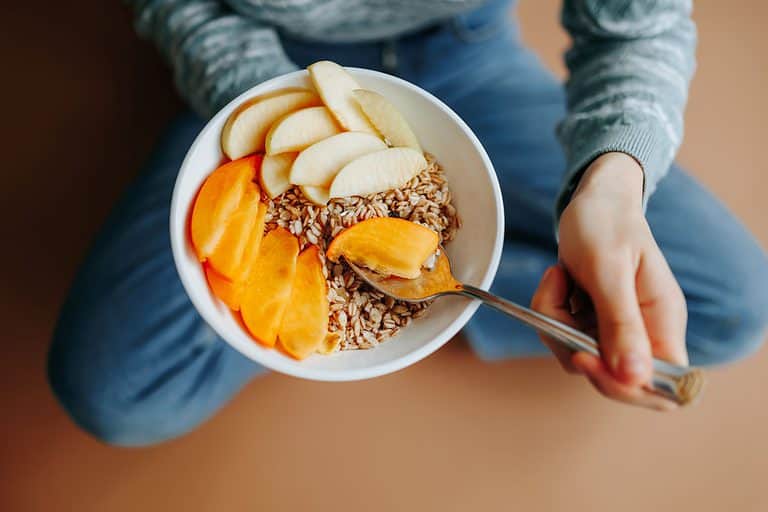19 Best Ways How to Boost Insulin Sensitivity Naturally
How receptive your cells are to insulin is referred to as insulin sensitivity. You can decrease insulin resistance and your chances of developing several diseases, including diabetes, by improving it.
Blood sugar levels are controlled by the hormone insulin, and insulin resistance makes it difficult for our systems to use insulin efficiently. This can result in weight gain, exhaustion, and a variety of other medical issues.
Insulin it is produced in your pancreas and aids in the transfer of blood sugar to cells for storage. When cells lack the ability to use insulin properly, your blood sugar levels rise.
Your pancreas produces more insulin when it detects high blood sugar in order to overcome insulin resistance and lower your blood sugar.
This causes a typical complication of type 2 diabetes, the gradual loss of insulin-producing cells in the pancreas. Moreover, long-term high blood sugar levels might harm organs and nerves.
If you have prediabetes, a family history of type 2 diabetes, are overweight or obese, or have any of these conditions, you are most likely to develop insulin resistance.
Here are 19 all-natural methods to improve your insulin sensitivity, supported by science:

1.Use natural sweeteners
We constantly advise avoiding sugar and switching to natural sweeteners. Sugar can contribute to weight gain and other health problems in addition to spiking blood sugar levels. Natural sweeteners like stevia and monk fruit are great alternatives to artificial sweeteners since they can fulfill your sweet appetite without having a harmful effect on your health. Stevia is a sweetener with no calories that is derived from stevia leaves. It has been demonstrated to have minimal to no impact on blood sugar levels, making it the perfect sweetener for diabetics. Another natural sweetener that has grown in popularity recently is monk fruit. It has been demonstrated that this low-calorie sweetener, which comes from the monk fruit plant, has no impact on blood sugar levels.

2.Maintain a healthy weight
Your overall health and the management of diabetes depend on maintaining a healthy weight. Obesity and increased insulin resistance can both raise blood sugar levels and make it more difficult to successfully treat diabetes.
Focusing on a balanced diet with plenty of complete, nutrient-dense foods, such as fruits, vegetables, lean protein, and healthy fats is crucial for maintaining a healthy weight. Stay away from processed foods and sugary beverages that can cause blood sugar abnormalities and weight gain.
Regular exercise is also essential for controlling diabetes and losing weight. On most days of the week, try to get in at least 30 minutes of moderate-intensity activity, such as brisk walking, cycling, or swimming.

3.Manage medication use
I frequently witness people struggling to successfully control their pharmaceutical use. Although medicine is a critical component of managing diabetes, it must be used properly to prevent problems.
Make sure you take your prescription as directed and on a daily basis at the same time. To aid in memory, set alarms or reminders.
Regularly monitor your blood sugar levels and let your doctor know if anything changes. Your medicine dosage may need to be adjusted if your blood sugar levels change.
In order to avoid any potential drug interactions, make sure to let your healthcare provider know about any other prescription drugs or dietary supplements you are taking.
You can achieve improved blood sugar control and lower your chance of developing diabetes-related problems by effectively controlling your medication use.

4.Sleep enough
I emphasize how important it is to get enough sleep frequently. Sleep is crucial for hormone and metabolism regulation, which can have a big impact on blood sugar control.
Sleep deprivation can result in insulin resistance, elevated blood sugar levels, and weight gain, all of which can make managing diabetes more difficult.
Get 7-9 hours of sleep per night and create a consistent sleep pattern to encourage healthier sleep. Have a peaceful night ritual, such as having a warm bath or reading a book, and stay away from stimulating activities like working on your computer or watching TV before going to bed.
Women with diabetes can enhance their overall health and blood sugar control by prioritizing getting enough sleep.

5.Try apple cider vinegar
I frequently suggest apple cider vinegar as a home treatment to help control blood sugar. It has been demonstrated that apple cider vinegar lowers insulin resistance, improving blood sugar management.
To help lower blood sugar levels, it is advised to take one to two tablespoons of apple cider vinegar before meals. You can combine it with water or add it to marinades or salad dressings.
It’s crucial to highlight that apple cider vinegar shouldn’t be used in place of diabetes medication, and that diabetic women should always check with their doctor before attempting any new treatments.
Women with diabetes may be able to attain improved blood sugar management and enhance their general health by include apple cider vinegar in their diet.

6.Eat more cinnamon
As a natural strategy to help control blood sugar levels, I frequently advise adding cinnamon to your diet. Cinnamon includes chemicals that can increase insulin sensitivity, which will result in better blood sugar management.
Cinnamon can be consumed in a variety of foods, including oatmeal, yogurt, and smoothies. In dishes like chili or roasted vegetables, you can use it as a spice.
It’s crucial to highlight that cinnamon shouldn’t be used in place of diabetes medication, and that diabetic women should always check with their doctor before attempting any new treatments.
Women with diabetes may be able to control their blood sugar levels better and enhance their general health by adding cinnamon to their diet.

7.Lower stress
Less stress is crucial for better diabetes management, I highlight this frequently. It can be harder to effectively control diabetes if you experience chronic stress, which can raise your blood sugar levels.
Try relaxing exercises like yoga, meditation, or deep breathing to reduce your stress levels. Regularly exercise, whether it be cycling, swimming, or walking. Moreover, give self-care pursuits a high priority. Examples include reading, visiting with loved ones, and getting a massage.
Women with diabetes may be able to control their blood sugar levels better with stress management, lowering their risk of diabetes-related problems and enhancing their general health.

8.Staying hydrated
For better diabetes management, I frequently emphasize the value of being hydrated. It can be harder to effectively manage diabetes if you’re dehydrated since higher blood sugar levels follow.
Women with diabetes should strive to consume eight 8-ounce glasses of water daily, and more if they exercise or live in hot or humid climates. Also, it’s crucial to steer clear of sugary beverages that might raise blood sugar levels, such fruit juice or soda.
Due to its ability to curb cravings and lower calorie consumption, staying hydrated can also help with weight loss.
Women with diabetes can minimize their risk of diabetes-related complications, enhance blood sugar control, and improve general health and wellbeing by drinking enough water.

9.Eat healthy fats
The fact is that eating healthy fats is essential for keeping your body and mind in good shape.
Good fats give our bodies the vital nutrition and energy they need, such those in avocados, almonds, and fatty seafood like salmon. Moreover, these fats may lessen inflammation, enhance cognitive function, and encourage healthy weight loss.
It’s critical to remember that not all fats are created equal, and that ingesting unhealthy fats, such those in processed meals and fried foods, can be harmful to our health. You may support your body’s natural functions and advance general heath by include healthy fats in your diet and avoiding bad ones.

10.Consume high-fiber foods
High-fiber choices are something I frequently advise as a strategy to promote general health and wellbeing. A healthy life style must include fiber since it helps support weight loss, blood sugar regulation, and digestive health.
Foods high in fiber, like fruits, vegetables, whole grains, and legumes, can make you feel filled for longer periods of time and lower your risk of overeating. Certain foods also slow down the absorption of sugar, which can assist in controlling blood sugar levels.
Moreover, fiber helps maintain gut health by encouraging regular bowel movements and lowering the chance of developing certain disorders.
Add a portion of fruit or vegetables to every meal, choose whole grains over processed ones, and have nuts or seeds as a snack to increase your intake of high-fiber foods.

11.Try intermittent fasting
Alternating between eating and fasting for several hours or even days at a time is known as intermittent fasting.
According to studies, intermittent fasting can help people lose weight, become more sensitive to insulin, and experience less bodily inflammation. Also, by regulating hunger hormones, it may help people consume less calories overall.
There are many ways to practice intermittent fasting, including the well-known 16/8 approach, which entails fasting for 16 hours and eating for 8 hours. Before beginning any new dietary program, it’s crucial to speak with a healthcare provider, but for individuals trying to support weight reduction and enhance blood sugar control, intermittent fasting may be something to think about.

12.Take probiotics
Probiotics are good bacteria that support healthy digestion, immunological response, and inflammation reduction.
According to research, eating probiotics can lower your chance of developing certain illnesses like irritable bowel syndrome and urinary tract infections. Also, it might help people lose weight and increase their insulin sensitivity if they have diabetes.
Several foods, including yogurt, kefir, and fermented vegetables, contain probiotics. Probiotic supplements are additionally offered as pills. Before beginning any new dietary supplement, it’s vital to speak with a doctor, but adding probiotics to your diet may be something to think about if you want to support your gut health and general wellbeing.

13.Limit alcohol consumption
It might be challenging for diabetics to maintain stable blood sugar levels due to alcohol’s ability to create fluctuations.
Alcohol can impact blood sugar levels, increase weight, and raise the risk of certain health issues like renal disease and nerve damage. Alcohol can also affect weight.
If they choose to drink at all, women with diabetes should do so in moderation and be aware of how alcohol affects their particular blood sugar levels. The effect on blood sugar levels can also be lessened by selecting low-carb beverages and avoiding sugary mixers.
Overall, restricting alcohol use can support better blood sugar management and lower the risk of problems for women with diabetes.

14.Exercise regularly
Improved insulin sensitivity can make it simpler for the body to control blood sugar levels.
Regular exercise can also help you control your weight, lower body inflammation, and minimize your risk of developing diabetes-related health issues including heart disease.
Before beginning a new workout regimen, women with diabetes should see their healthcare physician and pick an activity that they love and can stick with. Blood sugar levels and general health can benefit from even modest activity, such a 20-minute walk after meals.

15.Reduce caffeine intake
Caffeine can cause blood sugar levels to spike and increase insulin resistance, making it more difficult for the body to regulate blood sugar. Additionally, caffeine can interfere with sleep, which can lead to poor blood sugar control and contribute to other health complications associated with diabetes, such as heart disease. While it’s not necessary to completely eliminate caffeine from the diet, it’s important for women with diabetes to be mindful of their intake and consider switching to decaf or low-caffeine options. Drinking water, herbal tea, or other non-caffeinated beverages can also help support better blood sugar control and overall health.

16.Incorporate resistance training
Building muscle mass and improving insulin sensitivity through resistance training, such as weightlifting or utilizing resistance bands, makes it simpler for the body to control blood sugar levels.
Resistance exercise can also aid with bone health, weight control, and reducing bodily inflammation.
Before beginning a new workout regimen, women with diabetes should consult their doctor. They should also work with a certified trainer to ensure optimal form and technique. Bodyweight exercises, which are a form of strength training, can have a favorable effect on blood sugar levels and general health.

17.Avoid processed foods
In order to improve general health and control blood sugar levels, I frequently advise staying away from processed meals. Processed meals are frequently heavy in sodium, harmful fats, and added sugars, which can lead to weight gain and raise the possibility of developing certain health issues, such as heart disease.
Moreover, nutrient-deficient processed foods frequently lack fiber and vitamins, two things needed to keep blood sugar levels constant.
Women with diabetes should concentrate on eating full, nutrient-dense foods including fruits, vegetables, lean meats, and healthy fats. Women with diabetes can support better overall health and blood sugar control by avoiding processed foods and opting for healthy foods.

18.Use more Turmeric
To control inflammation and increase insulin sensitivity, I advise using turmeric in the diet. A substance found in turmeric called curcumin has significant anti-inflammatory qualities and may help lessen inflammation in the body.
It can be more challenging for the body to control blood sugar levels when there is chronic inflammation because it can lead to insulin resistance. Women with diabetes who use turmeric to reduce inflammation can support improved insulin sensitivity and blood sugar regulation.
Soups, stews, and curries can all benefit from the addition of turmeric. It can also be taken as a supplement, but it’s crucial to see a healthcare professional before beginning any new supplementation routine.

19.Practice mindfulness
I suggest engaging in mindfulness exercises as a means to reduce stress and promote general well-being. Stress can increase blood sugar levels and make it harder for the body to control blood sugar levels.
Exercises that promote mindfulness, such meditation or deep breathing, can lower stress and enhance mental health. Also, mindfulness exercises can help women with diabetes be more in touch with their bodies, which will make it simpler to spot and control variations in blood sugar levels and increase insulin sensitivity.
Making time for self-care and stress management techniques is crucial for women with diabetes as part of their overall diabetes management strategy. Women with diabetes can improve their general health and blood sugar control by adopting mindfulness techniques into their everyday routines.
Throughout the body, insulin plays a variety of critical roles.
In order to remove sugar from your blood, your pancreas must produce more insulin when your insulin sensitivity is low.
Poor insulin sensitivity can also lead to persistently high blood sugar levels, which are known to raise your risk for a variety of illnesses, including diabetes and heart disease.
You can, fortunately, do a lot of things to raise your insulin sensitivity naturally.
To improve your insulin sensitivity and reduce your risk of disease, think about implementing some of the recommendations in this article.
However, before making any changes to your current treatment plan, see a doctor or other qualified healthcare provider.





